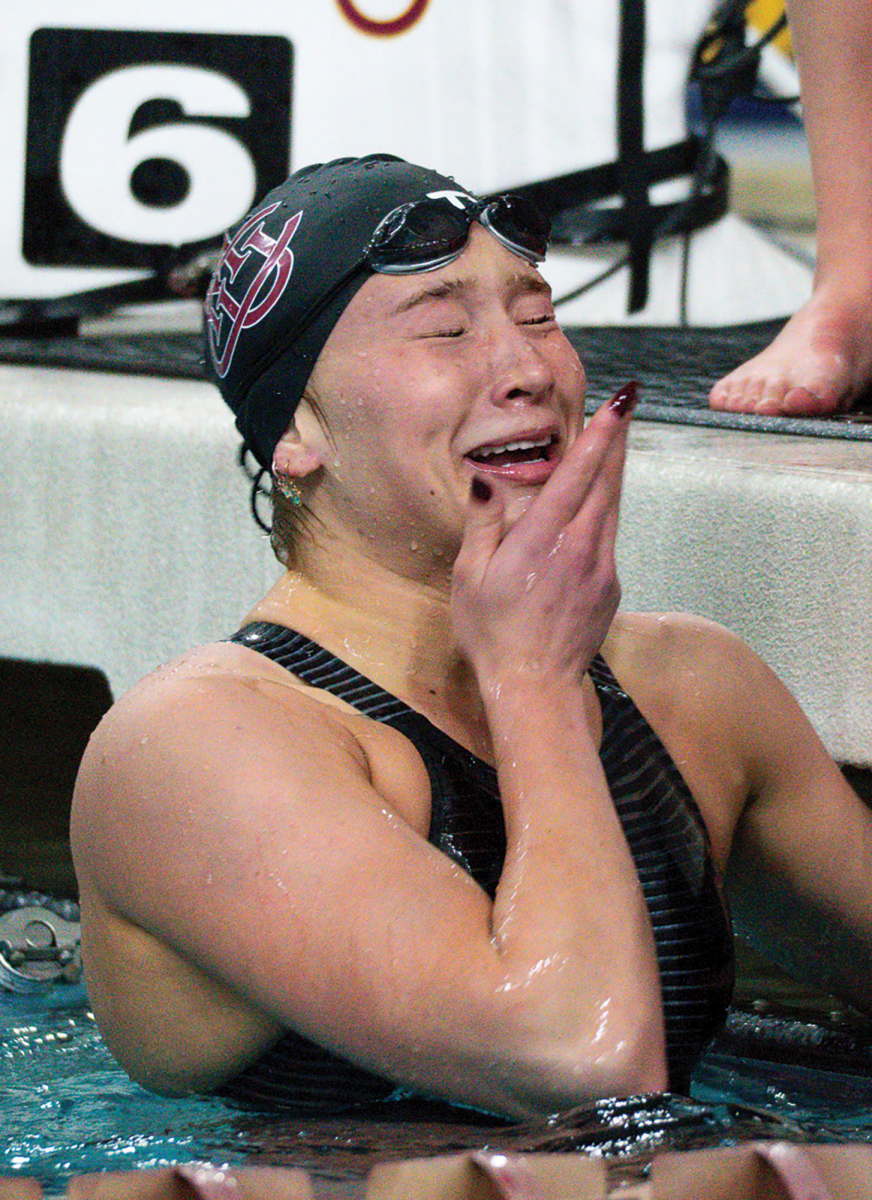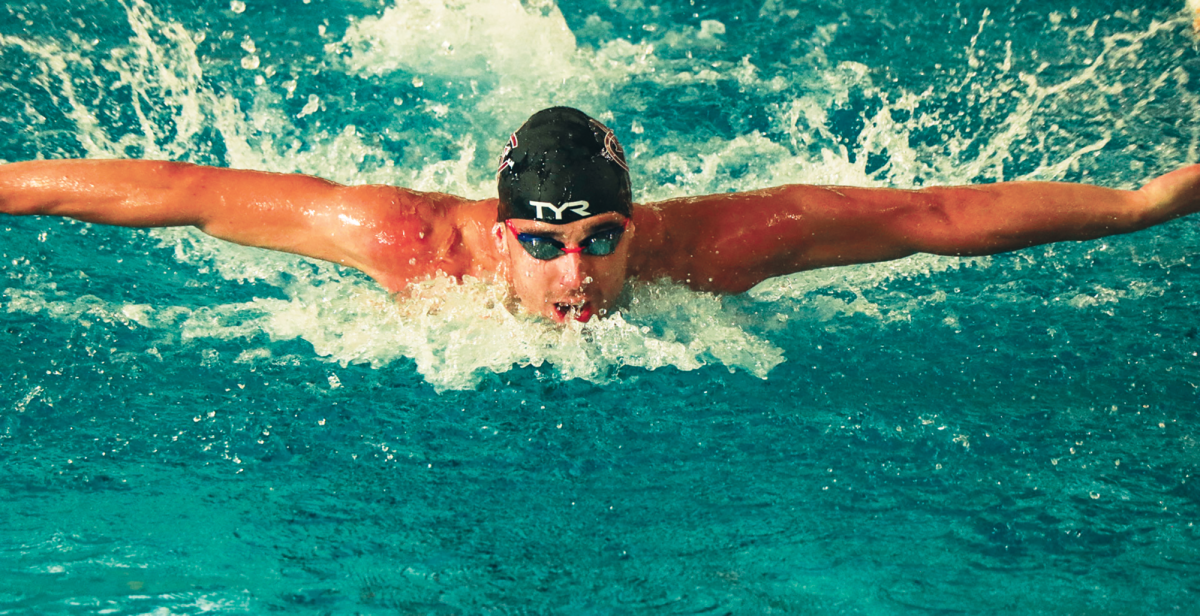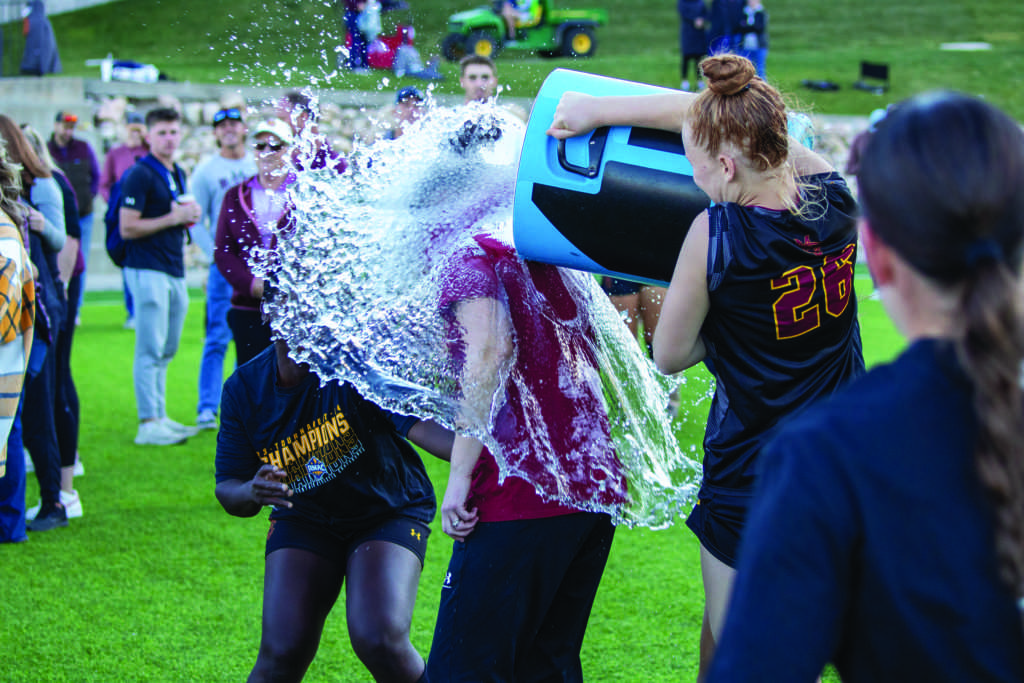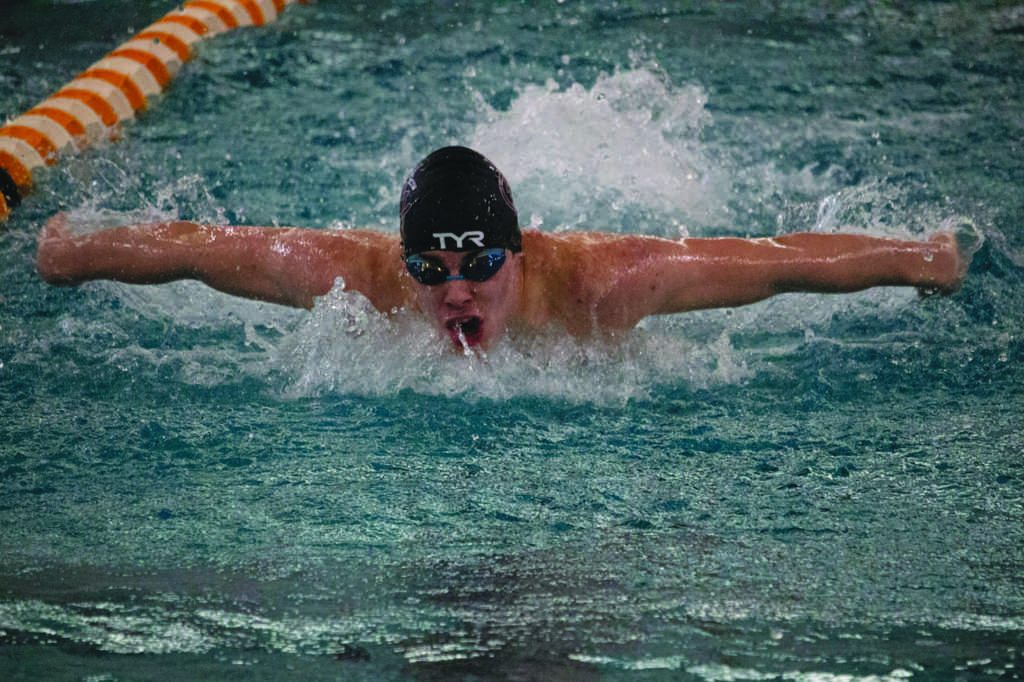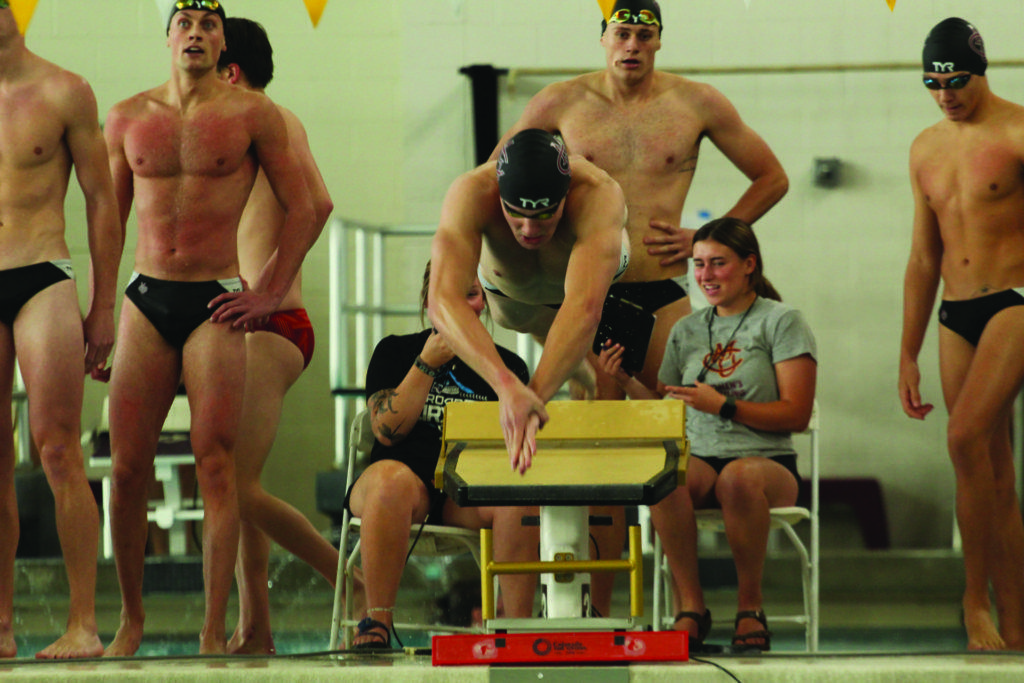Over the summer, Colorado Mesa University’s head diving coach Logan Pearsall traveled to Budapest, Hungary to compete in the 17th annual FINA World Masters Championship. This was Pearsall’s second world championship to compete in. While there, the 29-year-old competed in seven diving events and was one of 300 divers able to compete at the championship. Pearsall competed in the 25-29 age group, which is often considered the most difficult group, and was going up against 15 other divers from around the world.
When the six-day championship hit its end, Pearsall walked away with two gold medals, three silver, a fourth-place medal and fifth-place medal.
One of the most extraordinary things about Pearsall’s success was that he hadn’t dived in over a year due to a broken wrist injury he sustained in a community league softball game.
“You just really have to go back to your mental basics and know what you have to do to get back to a certain level,” Pearsall said. “[…] It was just resorting back to what I knew. You don’t just jump back on the horse.”
However, with the help of some of his friends on the national team, Pearsall was able to get back to performing at his highest level.
[media-credit name=”Courtesy” align=”alignleft” width=”300″] [/media-credit]
[/media-credit]
“It was nice having a lot of friends from our national championship that were there,” Pearsall said. “[…] Having so many friends there that are coaches was nice to collaborate and come up with a plan to [get me back on the horse].”
Not only did Pearsall get back on his horse, he rode it to a new level.
“I dove a couple of points better than I dove three years ago when I was actually training,” Pearsall said.
That is saying something for a guy that had already won 25 national titles and three world titles prior to competing in Budapest. However, Pearsall would be the first to tell you that one of the reasons for his success was the fact that this trip was a part of his honeymoon, and went just a few weeks after his wedding.
“My most favorite part was probably that it was part of my honeymoon,” Pearsall said. “That was really awesome to be able to do Paris and then Budapest. […] I definitely was a lot more relaxed than I probably would’ve been if I had just gone to compete. You’ve got all of the experiences from the two weeks prior, with the wedding and everything, so I was definitely a lot more relaxed and it was helpful.”
His more relaxed state combined with all the things he has learned as a coach helped him to compete at a higher level than he had at his first world championship.
“Being a coach has made me a better diver,” Pearsall said. “I consistently say certain things to my divers, so when I dive I have to think about that and be like well I can’t do that if I would coach that differently.”
However, despite his success in the medals department, that is not what Pearsall views as his biggest take away from the event.
“Athletically it was the comradery of getting to know all of the other people from all over,” Pearsall said. “Even much more than just the medals and winning, just making those relationships.”
Those relationships are something that Pearsall believes are some of the most important that he will ever make. Not only will he be seeing many of those same divers at future competitions, but Pearsall hopes that some of those connections will help advance CMU’s own swimming and diving program.
“It was cool getting to know some of the people internationally,” Pearsall said. “I gave out probably 25 business cards and talked with a bunch of different people to get coaches information and get international kids [to CMU].”
Pearsall isn’t sure how much longer he will be competing at these events. But with no age limit, he has the opportunity to compete for many years to come.



